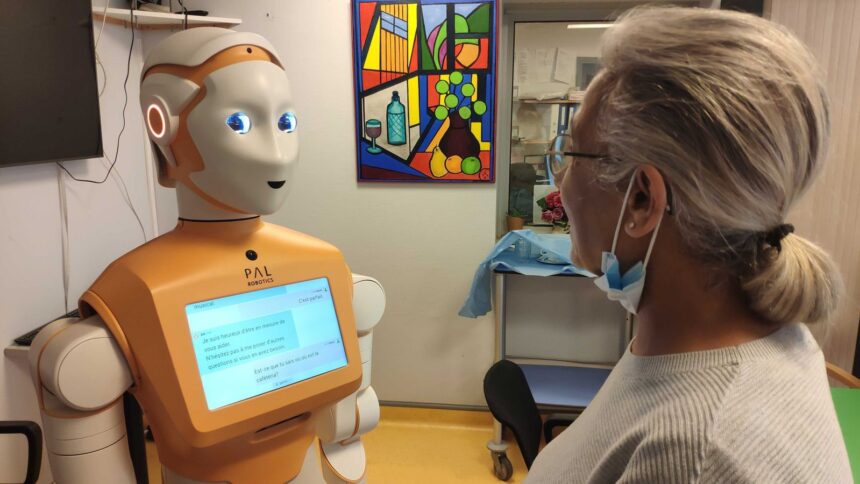Robots intended to assist in healthcare settings have undergone successful testing by professionals. The Spring robot greeted patients, assisted with daily duties, and engaged in multi-person interactions.
During early experiments at Assistance Publique Hopitaux de Paris in France, the Spring (Socially Assistive Robots in Gerontological healthcare) units greeted patients, responded to inquiries, and provided instructions.
With artificial intelligence installed, the robots could also comprehend multi-person discussions at the same time.
Researchers hope the robots, which also help with regular duties, can reduce anxiety in patients and save up hospital staff time.
According to the hospital’s head of department, Professor Anne-Sophie Rigaud, “older adults” valued the hospital’s “information and companionship” for patients suffering from cognitive problems.
“Our patients are increasingly interested in robotics and the evolution of hospital services, which they see as the logical evolution of our society,” she stated.
“We believe that the ARI robot could in future become an essential element of patient care in hospitals, thanks to its capacity for social interaction and guidance.”
Robots also lessened the possibility of direct physical contact between trial participants—clinicians and patients—by performing monotonous yet basic tasks.







